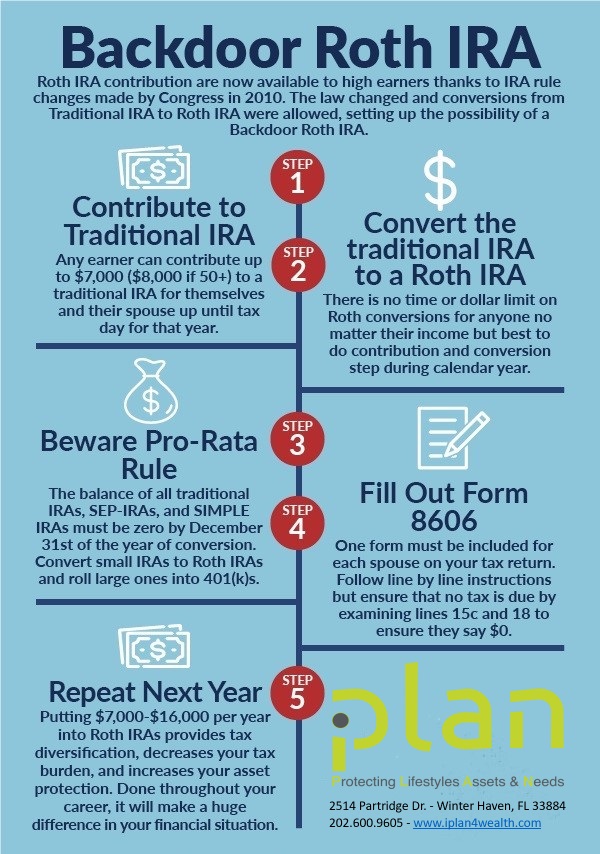If given the option, would you prefer tax-deferred savings or tax-free savings? If you prefer tax-free savings, you may want to consider contributing to a ROTH IRA. Why, savings can grow free of taxation. So, what’s the catch? None. You just have to follow the rules. Below is a step-by-step guide to converting tax-deferred savings to tax-free savings.
Rule # 1 – ALWAYS discuss tax strategies with your tax professional (Compliance made me type this).
Rule #2 – This strategy is a two-step process: contributing money to a non-deductible IRA and then converting the account to a Roth IRA. As with any financial advice, consult your advisor prior to implementing. 2 minutes to learn and save is better than 2 days trying to figure out why you owe taxes.
Rule #3 – Once your accounts are open AND you have consulted with your advisor to ensure there are no additional tax concerns, convert either a portion or all of your existing IRA accounts to either a ROTH or BACK DOOR ROTH (if your income exceeds the allowable thresholds). Again, please consult with your tax professional or advisor to confirm your specific requirements.
Rule #4 – As long as the ROTH is open for 5 years, withdrawals could be tax-free.

If you would like to learn more, please contact our office by dialing 202.600.9605 or alternatively, you can follow this link to schedule an online meeting at your convenience.
Investing involves risk, including risk of loss.
Be sure to consider all your available options and the applicable fees and features of each before moving your retirement assets.
1. You are always able to take money from your IRA. Some withdrawals may be taxable, and some may be subject to a 10% early withdrawal penalty. IRA conversions before the age of 59½ are subject to a 10% early withdrawal penalty. If you are over 59½, you are not subject to a 10% early withdrawal penalty. Other exemptions may apply.
iPlan does not provide legal or tax advice. The information herein is general in nature and should not be considered legal or tax advice. Consult an attorney or tax professional regarding your specific situation.











